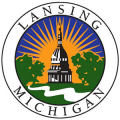There are various courses available in Michigan for individuals who wish to pursue a nursing career, each one tailored to a specific type of nursing certification. With over 80 institutions offering programs in nursing education, Michigan provides a wealth of options for aspiring nurses to gain certification as a nursing assistant, licensed practical nurse, or registered nurse.
Nursing assistant
Michigan
We've organized a comprehensive list of Michigan nursing schools. Below you'll find information on specific nursing programs such as LPN certificates and ADN, BSN, and MSN degrees. You'll also find a profile of nursing education and careers in each major Michigan city.
City-specific information
Aspiring nurses can target one of three nursing roles. Certified nursing assistants (CNAs) take a short eight- to ten-week certificate course, typically offered at a local community college. Licensed practical nurses (LPNs) complete a longer certificate program of 12-18 months; they must also pass the NCLEX-PN national examination to gain licensure. CNAs and LPNs are usually supervised by the most senior type of nurse, a registered nurse (RN).
Students entering the nursing profession can choose to qualify as either a certified nursing assistant (CNA), licensed practical nurse (LPN), or registered nurse (RN). Each nursing role has a distinct education pathway.
Certified nursing assistant
CNAs spend a relatively brief amount of time in school before beginning work, typically only a few months. The certificate programs offered at local community colleges are an affordable choice for many aspiring nursing assistants. CNAs in Flint, Michigan, earn a median annual salary of $26,000.
A host of nursing opportunities are available in the Dearborn / Livonia area of Michigan, as local specialized healthcare companies look to expand their operations. Infinity Primary Care is one such example. The company concentrates on family medicine and thus places an emphasis on the patient interaction skills of its nurses. Fresenius Medical Care, a multinational company focused on renal dialysis, is another local nursing employer.
The nursing roles
Ann Arbor provides an excellent home for launching one’s nursing career. Nursing salaries are significantly higher than state averages, and major healthcare employers are frequently in the market for new hires. We’ve profiled below several important local nursing roles.
Certified nursing assistant (CNA) and licensed practical nurse (LPN)
The all-in costs of nursing school can vary substantially depending upon several factors. Below we’ve profiled the most important decision criteria for prospective nursing students.
Public versus private school
Nursing students’ primary cost of enrollment is tuition. This cost can vary significantly depending upon the choice of school. For example, due to their lack of state funding, private schools are usually more expensive than their public counterparts. This gap may be partially offset, however, by financial aid and scholarship opportunities.
Michigan is home to a number of prestigious private colleges and universities that offer nursing degree programs. These private schools often have smaller class sizes than their public counterparts, enabling them to provide students a personalized education experience. For this reason, local nursing employers like Tenet Healthcare often favor graduates of private nursing schools. Although they can be more expensive than public nursing schools due to a lack of state funding, private schools are still within reach of the average student’s budget.
Public colleges and universities are an attractive option for students concerned about the costs of nursing education. Public schools charge lower tuition than their private counterparts because they are partially subsidized by the state government. As a result, Michigan residents can enjoy significantly lower tuition at prestigious schools like University of Michigan and Lake Superior State University. Both universities offer a breadth of highly regarded nursing programs.
Undergraduate programs
To practice in a nursing-related role in the state of Michigan, one must complete a state-approved education program and pass the relevant certification examinations. Before embarking on this, anyone interested in a nursing career in the Troy / Farmington Hills area should first understand each role and its educational prerequisites.
Nursing roles
There are a variety of pathways to enter the nursing profession in Lansing and East Lansing, Michigan. Gaining licensure to practice each nursing role requires enrolling in a state-approved program and completing the relevant certification examinations. It is important to understand each role and the pathway leading up to it as one prepares to embark on a nursing career.
Nursing roles
Nursing is a profession that encompasses several different roles. For students interested in embarking on a nursing career in the Kalamazoo / Portage area, it is important to understand the different job scopes and prerequisites for each role.
Certified nursing assistants
Certified nursing assistants (CNAs) assist patients with a variety of tasks for everyday living. The state of Michigan requires that they complete a brief state-approved program (typically several months in length) and pass the state certification examination to gain licensure.












